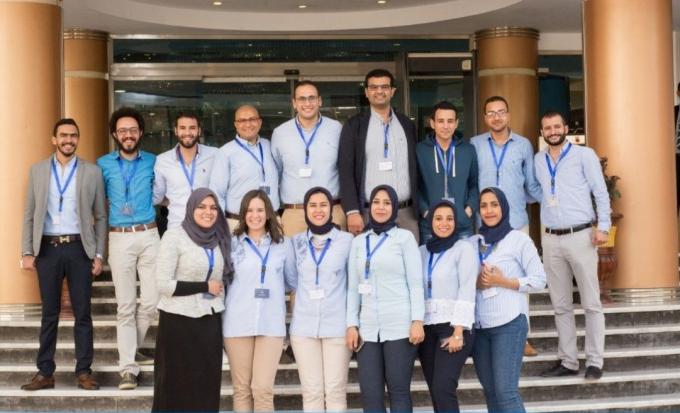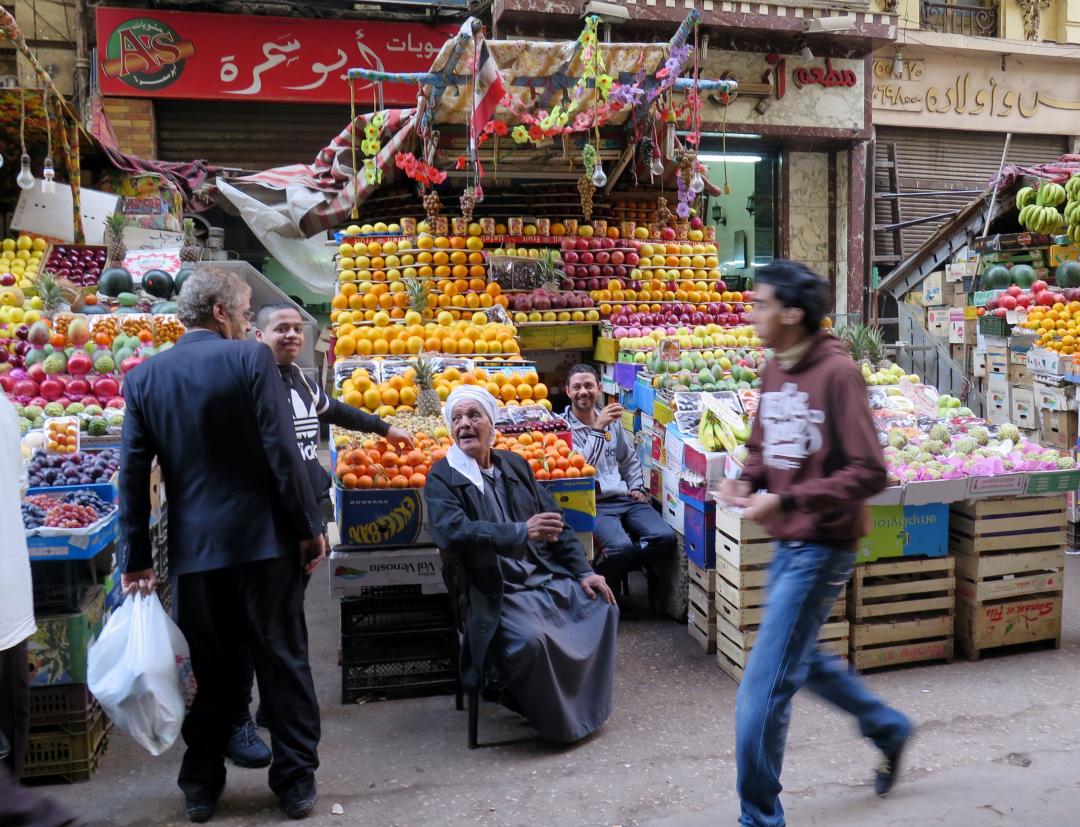Innovative Solutions for Scaling Up Inclusive Business in the Fast Moving Consumer Goods Sector
From March 2017 to March 2018, the Inclusive Business Action Network (iBAN), together with the Centre of Partnerships for Development (CAD), conducted a strategic advisory service (SAS) programme for inclusive businesses in Egypt. The programme aimed to support the scaling up of Egyptian inclusive business (IB) models along the fast moving consumer goods (FMCG) value chain. Fifteen companies active in the FMCG sector participated in the programme to assess their organizational capabilities to work with low-income communities and to analyse key challenges along their value chains. With strategic support, the companies drew up tailored action plans to overcome these challenges, integrate people at the so-called Base of the Pyramid (BoP) into their businesses and develop solid partnership strategies. The one-year programme concluded with a workshop to systematize the lessons learned of the participating companies.
Following the programme, iBAN drew up a knowledge paper that builds on the key learnings, challenges and experiences the companies shared in the training sessions. It provides hands-on solution approaches, as well as inspiring examples of the participating IB companies in the Egyptian FMCG sector.
Opportunities and challenges in the FMCG sector
The number of supermarkets in developing and emerging countries is on the rise, changing the way goods are distributed and sold. For one thing, the fast rollout of large foreign retail chains in countries like Egypt, which have low productivity and traditional retail structures, potentially threatens poor communities by destroying their traditional sources of income. However, it can also foster the inclusion of people at the base of the economic pyramid (BoP) in value chains and create new income opportunities for the poor.
Innovative business solutions to meet a growing demand of agrifood products
Egypt is considered the biggest consumer market in the MENA region and one of the largest emerging markets in the world. A rapidly growing demand for agrifood products in the country calls for innovative business solutions. As the agriculture sector is the main upstream industry for the FMCG sector, businesses need to stabilize their agricultural supply base. Hence, working inclusively with BoP farmers offers a strong opportunity for companies in the FMCG sector.

Working on solutions through innovative partnerships
Despite this opportunity, the SAS programme has shown that IB companies often face similar problems when it comes to scaling their IB models: Low-income groups – acting as suppliers, distributors or consumers in the value chain of such companies – face special challenges such as low education levels or lack of access to financial services. IB companies have to tackle these specific problems and find creative solutions, for example by engaging in innovative partnerships.
Over the course of the SAS programme, the participating companies had the chance to exchange experiences and thereby benefit from learning exchange. They made contacts and identified potential opportunities for partnerships and cooperation between the companies (B2B), as well as with potential investors, local support structures or with NGOs. Peer learning formats opened new perspectives for doing business with people at the BoP.
Key lessons from Egypt to improve IB models
The companies involved in the SAS programme identified four key insights for successfully improving FMCG IB models in Egypt and elsewhere:
1. Understanding of BoP needs and enhancement of their capacity are key success factors
The training programme revealed that the relationship between FMCG companies and the BoP - smallholder farmers as suppliers or consumers - is in most cases tense and challenging.
In order to engage effectively with BoP suppliers along the value chain and to establish good partnerships with them, the companies were advised to raise their understanding of the BoP needs by conducting an in-depth analysis.
Example of Reshrimp: Organic fertilizer for smallholder farmers
Reshrimp buys shrimp shells, a waste product from shrimp peeling, from local fishing communities in an oasis in the North Upper Egypt region. They process shrimp shells into organic fertilizer and sell it to agricultural companies and smallholder farmers.
The company has established a training for small farmers in Upper Egypt on how to use the peeled shrimps’ nutrients in agriculture. The company was able to improve its business activities on the supply and selling level. On the supplier level, the company has established close partnerships with groups of poor women to buy the peels, which are otherwise wasted and thrown away.
2. Innovative financing schemes are needed for IB models in Egypt
Most of the companies reported that they had difficulties accessing finance in order to engage in partnerships and networks, deploy trainings to the BoP or acquire knowledge and technology. Often, this is due to complex and ineffective linkages between financial institutions and BoP markets in Egypt. However, some of the companies, such as Wadi Food, have developed innovative strategies to overcome this challenge.
Example of Wadi Food: No credits for farmers without cooperative
The company applied for financing for its supplier development programme with olive farmers, but financial institutions were not willing to provide loans to farmers unless they were organised in cooperatives. As Wadi Food could not identify a trustworthy cooperative, the company set up a partnership with Bashair (previously a USAID funded programme) to oversee an agricultural cooperative and finance micro-farmers that were willing to follow Wadi Food’s techniques for olive cultivation.
3. Promoting women´s participation accelerates business activities and social development

A third insight obtained through the learning process in the SAS programme is that enhancing women’s participation in the value chain accelerates business activities and improves business efficiency. However, in the case of Egypt, the working environment for women is challenging. Cultural patterns may prevent women from leaving the house and holding a job. Hence, to incorporate more women into the workforce, the companies need to consider cultural aspects and adjust their business models and/or the work environment.
Example of Brimore: Empowering female distributors through training
Brimore has established a distribution channel based on housewives of low and middle income classes and their strong connection with each other through informal networks. Initially, Brimore collaborated with two women who brought about 20.000 registrations of women willing to work with Brimore across 14 Egyptian cities. Nowadays, Brimore is adding 300 to 400 women to their sales force every month. Brimore trains the women in four areas: sales and team building, e-commerce, financial literacy, and negotiation and other soft skills. According to Brimore, the extremely high attendance rate (95 %) of the saleswomen participating in the trainings has led to a dramatically improved sales performance.
4. Succeeding in inclusive business implies succeeding through distribution channels
Another challenging field for many companies is the last mile distribution of their products to customers and clients. During the SAS programme, the companies put several strategies into place to address this problem. For instance, they expanded their distribution channels through win-win partnerships with local organizations (e.g. NGOs, cooperatives, local SMEs and local social enterprises) or reinforced the skills of distributors and retailers to improve sales and deepen the relationship with distribution and retail networks.

Example of Habiba Organic: Broadening distribution channels
Habiba Organic Farm produces organic fruits and vegetables. They are located in the South Sinai, far away from the big consumer centres and established distribution channels, which leads to high distribution costs. The company’s managers concluded that they had to expand their distribution strategy to broaden the client base. This led them to work with more retailers in Egypt, enabling them to distribute their products more easily and reduce the distribution costs, and providing better and more reliable outlets for larger quantities of produce. As consumers in Egypt are now more aware of natural products and organic agriculture, Habiba Organic is able to collaborate with broader distribution networks, such as hypermarkets, supermarkets and even restaurants and hotels.
For a more detailed insight into the work of iBAN’s Strategic Advisory Service in Egypt, please access the full report (pdf) here.
